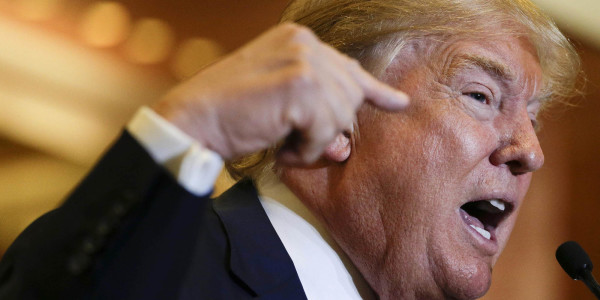

This week, I sat at a bar with an Afghan-American translator who served alongside special operations soldiers on some of the most dangerous and sensitive combat missions in the Afghan War back in 2011. She had been injured in an improvised explosive device explosion during a night raid that year and was working to put her life back together and recover ever since. As we sat and talked about Afghanistan, Syria, and Iraq, the television occupying the bar’s airspace displayed a graphic about Donald Trump’s proposed ban on Muslims entering the United States.
I asked her what she thought about the coverage the ban was receiving and how seriously the idea of banning Muslims from America was being discussed.
“It’s a circus,” she said. “The whole thing. I don’t think Trump believes it, but what about how many people cheer when he says it?”
That moment of disconnect between an American who served, and nearly died, for her country at war and an America that was having a serious discussion about banning all members of her religion showed how personal and how preposterous this national policy conversation has become. Because while Trump may have proposed the ban, we as a nation have not immediately rejected it as unbecoming of everything for which we and our country stand. And that is a mistake. Because it is not about Trump or about politics, it is about national patriotism, our founding principles, and an America now in its sixteenth year of post-9/11 wars that is better than this.
Related: How Does The Military Community Really Feel About Trump? »
“Only in the United States is there such a rich mixture of races, creeds, and nationalities — only in our melting pot,” former president Ronald Reagan said in the summer of 1984 as he accepted the Republican presidential nomination. “Every promise, every opportunity is still golden in this land. And through that golden door our children can walk into tomorrow with the knowledge that no one can be denied the promise that is America.”
That is who we are. We are not a nation that bans one religion from our borders. Nor are we a country that sees those who follow one faith as our collective enemy. Our words and our ways pay tribute to the notion of a melting pot, not hardened fears and hatreds.
This is part of what has kept us safer than others, including those in Europe, who are more vulnerable to their youth turning to extremism. When we live up to the American ideal that there is only an “us,” that there is no “them,” that we all have a chance to live up to the “promise that is America,” as Reagan described, it is harder to feel disaffected, to be aggrieved, to feel that extremism is the only club that will have you and then the one to which you most want to belong.
The truth is we are a nation that has forgotten it is at war, one in which less than half a percent of the country has fought 100% of its wars for more than a decade, and that most of those years were spent working with and serving alongside Muslims.
Spreading fear and bigotry over the American way of life is not a path to keeping our nation safe. Quite the opposite. And we can and must do better.
At the heart of America is a “golden door” that leads us all forward, not a metal gate closed to all members of any one faith.